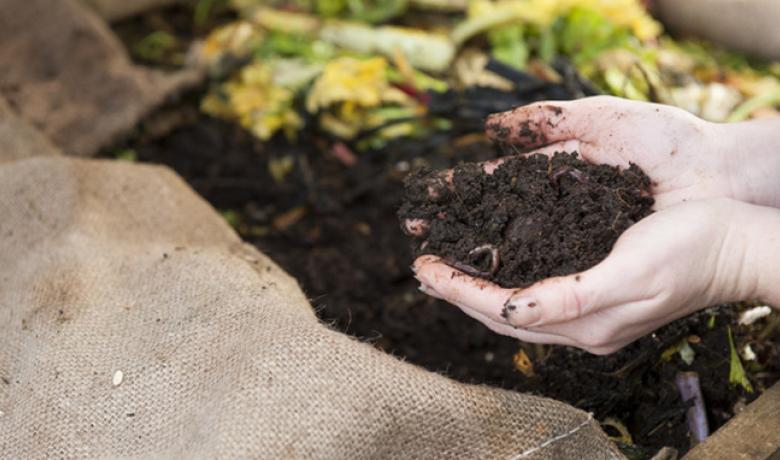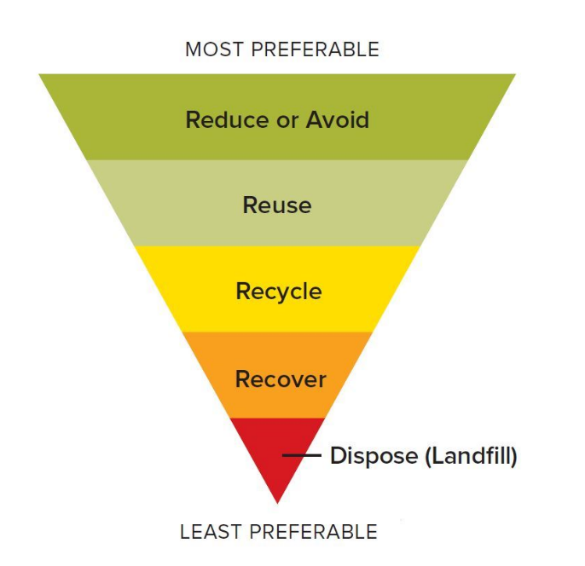As our city grows, so does the amount of waste we create.
We are committed to reducing the impact our waste management has on our environment and are continually seeking better, smarter and more sustainable ways of reducing waste, increasing resource recovery and increasing diversion from landfill.
The way we manage waste is a shared responsibility, so we are also raising awareness and actively working with our community to create more sustainable future behaviours in how we use, reuse and dispose of materials once we are done with them.
Our achievements so far
- 56 per cent of material (25,000 tonnes) diverted away from landfill.
- 18 tonnes e-waste safely collected via our waste drop-off day program.
- 12 tonnes of hazardous chemicals safely collected via our detox your home initiative.
- 6 tonnes of chemical waste safely collected via our waste drop-off day program.
- 1,788 composting products sold through the Compost Revolution program.
- Community awareness and education programs dedicated to waste reduction/reuse and recycling - resulting in low bin contamination of 7 per cent.
Turning our sustainability goals into actions
Collaborating with the Metropolitan Waste and Resource Recovery Group and other councils on the delivery of waste services for landfill, recycling, garden waste and advanced waste processing systems.
Actively seeking and investigating new sustainable and innovative environmental practices for waste management, recycling and advanced waste processing to increase future recovery of resources that would otherwise be destined for landfill.
Exploring the provision of Food Organics Green Organics (FOGO) waste collection services (42 per cent of garbage in bins currently consist of food organics) to further divert waste from landfill.
Planning for the introduction of the container deposit scheme and the potential addition of a fourth bin for glass recycling.
Building awareness and directly engaging with our community — residents, schools and businesses through a variety of education programs and events around waste reduction, good recycling, composting and diverting garden and food waste away from landfill.
Continuing to work with our community in supporting good recycling behaviours by providing versatile collection and drop off services.
Supporting community and school efforts in litter collection for Clean-Up Australia Day.
Fostering partnerships with organisations to encourage, educate and equip our community to reduce waste sent to landfill — Compost Community an award winning social enterprise created to help households start composting and worm farming.
What we are doing
- Lead to Sustain Conference: offering young people in our community the opportunity to learn how to become more sustainable in their choices and to lead by adopting more sustainable actions for the future benefit of our local community – includes activities dedicated to reducing waste, recycling, saving water, reducing energy consumption, supporting biodiversity and ecology
- Resource Smart Schools Program: assisting schools to embed sustainability into everything they do including ways to minimise waste, save energy and water, promote biodiversity and take action on climate change to benefit their school and community.
- Manningham Schools Environmental Education Program and the Doncaster Hill Community Garden School Holiday Program: includes activities dedicated to recycling and worm farming.
- Manningham’s Backyard Biodiversity: Litter Impacts a wildlife video series produced in collaboration with Wild Action Zoo - highlights the impact of discarded litter on our local wildlife and natural environment.
- Smarter Living Program: a webinar series in collaboration with Whitehorse Council - dedicated to managing household waste and living more sustainably.
- Eastern Alliance for Sustainable Learning (EASL): offering a range of learning programs and events such as the annual Learning for Sustainability Conference — in collaboration with 5 member councils across the Eastern region.

